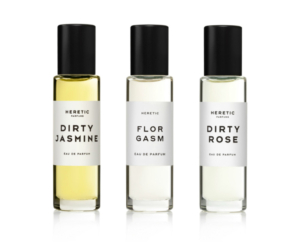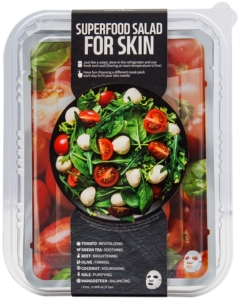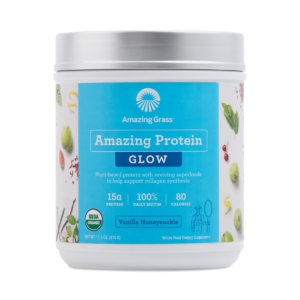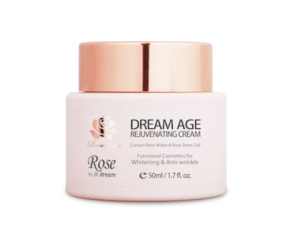Rising awareness of animal welfare and the impact of animal agriculture on climate change has led consumers to rethink their attitudes toward animal-derived ingredients in the foods they eat. Now, we are seeing this same attitude toward the beauty products they apply to their skin. A quarter of consumers report they are purchasing plant-based skincare today, and 39% say they would like to buy products with plant-based ingredients. With this type of demand, manufacturers are innovating to bring new plant-based beauty ingredients to market. Here are four ways we see beauty manufacturers capitalizing on plant-based trends.
PLANT-BASED FRAGRANCE
Plants and herbs have been used throughout history to induce particular mental and emotional results. Scent is associated with both mood and memory and can evoke thoughts of times and places more powerfully than any other sense. Despite the benefits of natural scents, 100%-natural fragrance brands are still rare. The majority of mass-produced perfumes – even those with ‘natural’ notes – use synthetic chemicals like aldehydes, because organic raw materials are more expensive and harder to source and preserve.
However, several natural fragrance pioneers are carving out a new market and driving sales with it. Upstart brand Heretic has created a liquid version of the traditional sage smudge stick, designed to “combat stale or negative energy.” Flowers have long been the source of fragrances and healing properties in beauty care. Truly natural and sustainable sources of botanical ingredients do more than create good marketing copy; they provide genuine quality and functionality for beauty products.
Not to be overlooked, however, is the trend toward fragrance-free products such as Earth Science moisturizer. The fragrance-free trend arose from consumers experiencing reactions to synthetic volatile organic compounds found in most personal care and household products. Thanks to natural aromatics, those consumers may be able to enjoy scents again.

FOOD-GRADE SKIN CARE
The majority of skin care consumers – 72% – see their skin just like any other organ. Therefore, it’s no surprise that 50% of skin care consumers report seeking skin care products that are ‘all-natural’ and ‘free of synthetic chemicals’ (parabens, formaldehyde, and polyethylene).
Korean beauty is leading the way in using food-grade ingredients in face masks and patches. With a great name like “Superfood Salad for Skin,” there’s no mistaking this Korean brand’s positioning. The packaging even looks like salad containers. Korean brand Nacific offers a line of acne patches called “Fresh Herbs Origins,” formulated with herbs and aloe vera, another clear example of food-grade positioning.
California skin care brand Youth to the People’s slogan is, “We eat it, we drink it, let’s wash with it.” Their message is, “powered by superfoods, perfected with science”. The brand’s small-batch line – cleanser, serum, and cream – reads like a cold-pressed cocktail menu, with ingredients like kale, spinach and green tea. Incorporating food-grade, plant-based ingredients in beauty products may be the most powerful trend in beauty today.

PLANT-BASED BEAUTY FROM WITHIN
Nearly 90% of consumers believe they can nourish their skin with the foods they eat. Given this belief, a natural extension of food-grade beauty products are supplements that promise beauty from within. Herbs, fruits, and proteins that promote healthy skin are taken internally rather than applied externally.
Amazing Protein GLOW from Amazing Grass is an example of a brand capitalizing on the plant-based food trend. This plant-based product provides the benefits of collagen with plant-based ingredients like kale, which support collagen synthesis.
Australian-based The Beauty Chef is another example of a brand that is making the connection between gut health and skin health. The Beauty Chef’s powdered products are vegetarian and contain bio-fermented plant-based superfoods that support nutrition for a healthy gut and glowing skin.

NATURE AND SCIENCE
Along with the desire for natural, consumers still want their beauty products to deliver compelling benefits, like wrinkle reduction, as promised. Shiseido is a brand that is innovating in this space with their launch of ReNeura TechnologyTM. This product is made of Ashitaba, a vitamin-packed plant known to protect mitochondria from damage, boost energy, and regenerate nerve cells.
The industry is also creating new techniques like growing plant cell cultures to manufacture rare ingredients. Similar to the introduction of lab-grown or cultured meats in the food industry, a number of beauty brands are culturing the cells of plants rather than harvesting and processing new plant supplies to obtain fragrances and functional extracts. Rose by Dr. Dream, from South Korea, uses cultured stem cells from callus roses, and Plant Cell Beauty, also from South Korea, cultures plant stem cells derived from Korean ginseng. Korean beauty lines aren’t the only ones experimenting. The British skincare brand Elemis uses Edelweiss cell cultures, too. It remains to be seen how consumers will respond to new technologies in beauty, but this is a trend to watch.

PLANT-BASED IS POISED FOR GROWTH
Brands and retailers looking to invest in new beauty lines or extensions will do well to take a close look at the potential of plant-based products. The fast growth of this segment is being driven by an overall belief by consumers that products used on the skin can impact one’s well being. If your brand is seeking insights into the natural beauty consumer, Linkage Research offers trend reports, custom insights, and webinars on the topic. For more information, visit https://linkageresearch.com.


 Linkage Research 2019
Linkage Research 2019